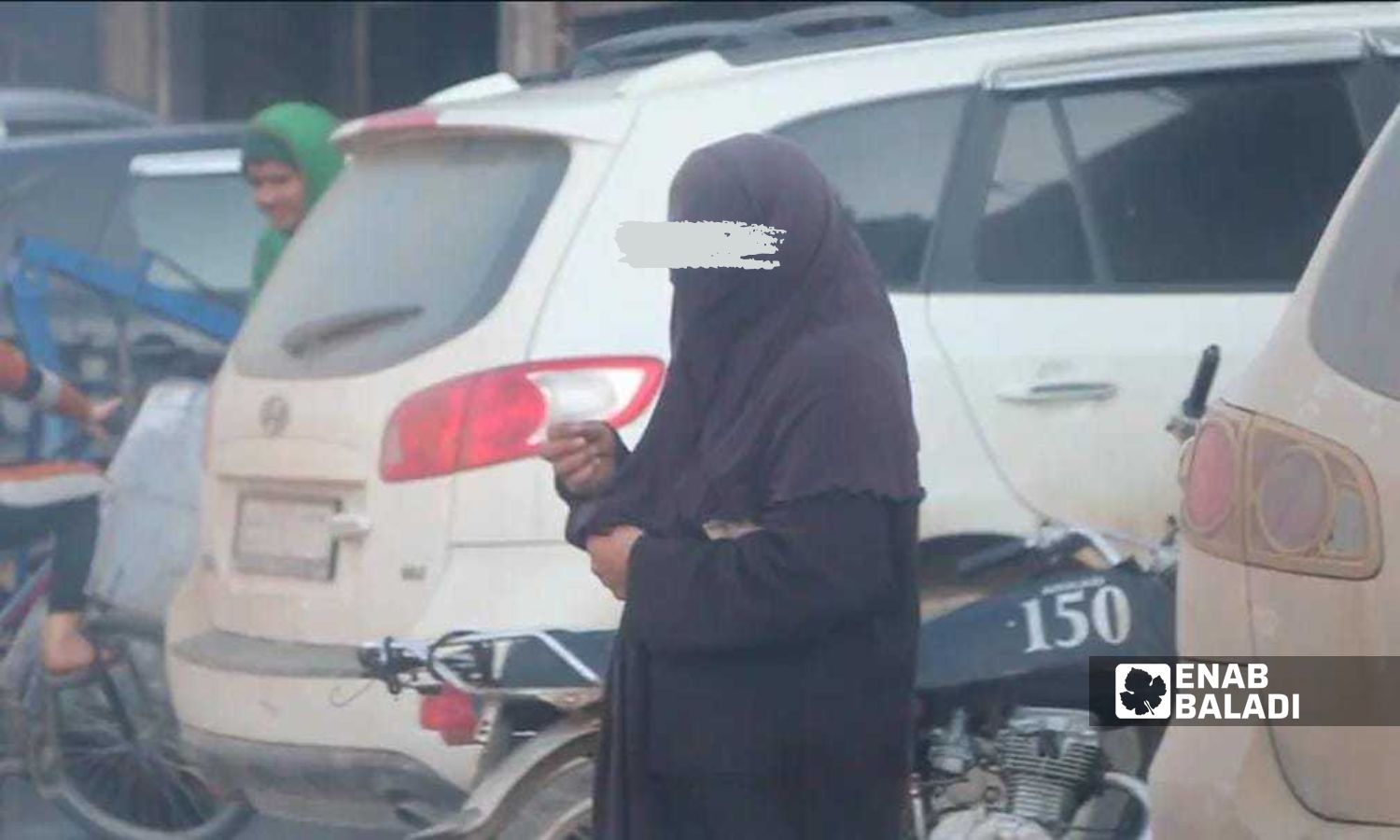



Beggars are becoming more common on the streets of Azaz in the northern countryside of Aleppo, seen in markets, roadside, in front of restaurants, and near mosque entrances, and range from children and women to the elderly.
Begging is not a new phenomenon in the area but has become more prevalent without any intervention by responsible parties amidst a failing economy. The daily wage of workers in various professions such as agriculture and construction ranges between 70 and 100 Turkish liras, while the recognized extreme poverty line has reached 7,844 Turkish liras per month.
According to shop owners interviewed by Enab Baladi, some beggars rely on intense perseverance to achieve their goals, causing embarrassment to shop owners or their customers, prompting some to verbally and physically abuse beggars to rid themselves of this persistence.
Mahmoud Dadikhi, a resident of Azaz working in car maintenance in the industrial area, told Enab Baladi that most beggars are women, and many adopt methods to gain people’s sympathy, including carrying their children in ragged and dirty clothes and some sit next to garbage containers. Some beggars resort to deceptive tactics, faking disabilities.
Abdul Qader Kallo, a supervisor at the Khibzeh Sikhneh restaurant, told Enab Baladi about a woman who has made the front of his restaurant her main headquarters accompanied by four children, periodically sending them to ask customers inside the restaurant for help, while she follows customers outside and asks them for money.
Kallo mentioned that the beggars who frequent his restaurant daily number about 20, all asking for money and refusing to accept food, indicating their desire for money only and not the fulfillment of their primary needs, most importantly food.
Enab Baladi‘s correspondent tried to communicate with several beggars in Azaz, but most of them refused to talk. However, a woman (beggar) said she had nine children who worked in plastic waste collection.
She added that she resorted to begging after losing her husband to meet her household needs, and Enab Baladi could not verify the accuracy of the information she provided.
Mohammed Jarobi, displaced from the city of Aleppo and residing in Azaz, told Enab Baladi that the abundance of beggars has reduced the likelihood of helping them, noting that some of them have become known to the locals, who have memorized their faces and places of presence.
Jarobi believes that those in need do not follow these methods, considering that the majority of beggars do not really need help but have taken up begging because it is an easy way to get money without effort, compared to self-employment that requires effort in exchange for financial income. Their increase has blurred who is in real need and who is pretending.
On his part, a pharmacist near the al-Kfein roundabout, who preferred not to be named for personal reasons, told Enab Baladi that an early morning “Hilfawiyah” type vehicle brings a number of beggars, mostly women and children. Some of them head towards the markets, while others move towards the Saraffin street or al-Harir and al-Kfein roundabouts.
He added that the phenomenon of begging has recently included all age groups, male and female, noting leniency by responsible authorities in preventing begging, which has led to its spread.
Enab Baladi contacted the Syrian Interim Government (SIG) to verify the responsible party and clarify the mechanism for dealing with begging cases and the legal framework for this phenomenon. The subject was referred to the Directorate of Security and Police in Azaz.
Enab Baladi‘s correspondent went to the directorate and after meeting with the general director, he was informed that the responsibility could lie with either the criminal police or the police station. After visiting the criminal police, he was directed to the station, where the chief of the station did not provide an answer to the questions asked.
A large number of residents in northwestern Syria suffer from extreme poverty, a decline and deficit in purchasing power, and limited job opportunities. The area is inhabited by 4.5 million people, 4.1 of whom need help, 3.7 million suffer from food insecurity, 2.9 million are internally displaced, and two million live in camps, according to United Nations data. Local statistics indicate there are between 5.5 to 6 million people.
The recognized poverty line in northern Syria has reached 9,938 Turkish liras, and the extreme poverty line is at 7,844 Turkish liras, with an average unemployment rate of 88.74% (considering day laborers among the mentioned categories), according to the Syrian Response Coordination Group (SRCG) working in the region.
Every US dollar is equivalent to 30 Turkish liras, according to the Döviz website, which specializes in currency exchange rates.
if you think the article contain wrong information or you have additional details Send Correction